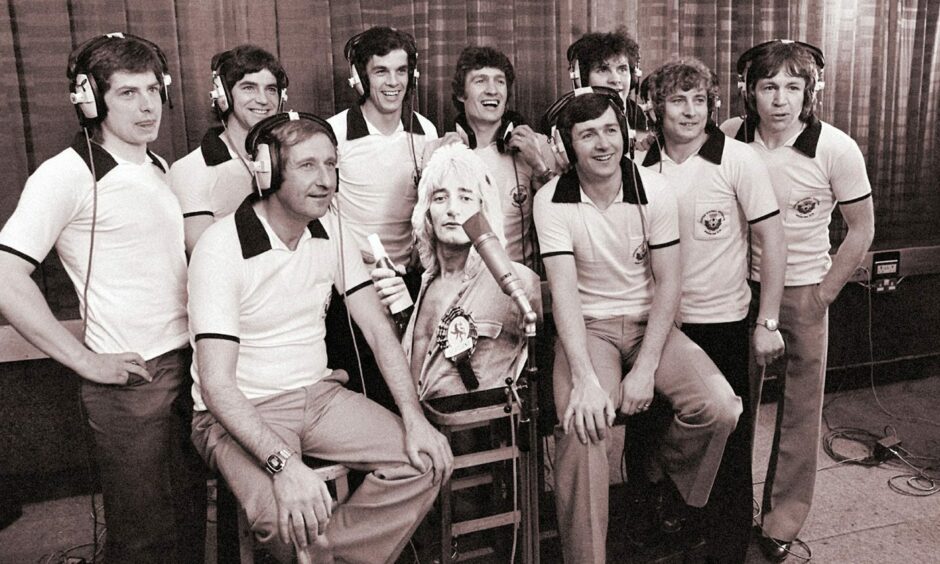
Ally MacLeod dared to dream at the 1978 World Cup in Argentina and forecast the Scotland team would return home with “at least a medal”.
There was a rousing open-top bus send-off at Hampden Park before a ball had been kicked, as the nation lost its grip on reality and succumbed to the hype.
McLeod was like the pied piper.
But when the team reached South America, they lost 3-1 to Peru and drew with Iran, only to end their campaign by defeating eventual runners-up Holland.
The sight of an exasperated MacLeod sitting in the dugout with his head in his hands became the defining image of Scotland’s first-round exit in 1978.
It was not just the fans and the pundits who were viciously unforgiving of the fallen idols after their humiliating elimination — even British diplomats got in on the act.
In a scathing dispatch, Hugh Carless, the British chargé d’affaires in Buenos Aires, denounced their lack of professionalism, suggesting they were “provincials” out of their depth in international competition.
MacLeod himself summed up the mood of the nation: “With a bit of luck in the World Cup I might have been knighted,” he said.
“Now I’ll probably be beheaded.”
MacLeod survived – head intact – by the casting vote of the chairman of the six-man international committee and took control of Scotland’s first qualifier for Euro ’80.
He forged a siege mentality and failed to turn up for his own press conference to announce his 18-man squad for the first match against Austria on September 20.
MacLeod axed half of the men from the 1978 World Cup squad and freshened things up with young players like Roy Aitken, Andy Gray, Willie Miller and Tony Fitzpatrick.
Derek Johnstone declared himself unavailable for selection.
Johnstone was the top goalscorer in Scotland with 39 goals in all competitions as Rangers won the treble in 1978 but did not play any of the three matches in Argentina.
“The man did not rate me – it is as simple as that,” the Gers icon said.
“My complaint was not, and never will be, that he did not play me.
“What I am complaining about is the fact that he took me halfway round the world with, as far as I can make out, not the slightest intention of letting me step on to the park.
“I am fully convinced that Ally MacLeod included me in his squad for Argentina with no intention of naming me in the side unless the other recognised strikers were struck down and ended up hobbling about on crutches.”
MacLeod forged a siege mentality
The Euro 80 qualifier in Vienna was Scotland’s first foray into international football since Argentina and MacLeod was still refusing to talk to the Scottish journalists.
He would only talk to the Austrian media.
“It won’t be easy but we want to win the group,” he told them.
“They are a good side and we need to win here – although a draw would do.
“I’d be happy with that.”
MacLeod picked a 4-3-3 formation with Kenny Dalglish, Andy Gray and Joe Jordan in attack but Scotland were unsure, edgy and strangely careless in their distribution.
They paid the price for being overrun in midfield and goals from Bruno Pezzey, Walter Schachner and Wilhelm Kreuz put Austria 3-0 up in 64 minutes.
MacLeod had his head in his hands again.
He sent on Arthur Graham for Joe Jordan and immediately got a goal back when Gordon McQueen scored a header from a Willie Donachie cross.
Andy Gray pegged things back further on 78 minutes with a brave leap and Archie Gemmill went close to making it 3-3 as Scotland went all out for the equaliser.
It wasn’t to be.
Could we have won Euro 80 in Italy?
MacLeod was typically upbeat afterwards and stressed the 3-2 defeat was one of the best performances “from any Scottish side” away from home.
Reality was suspended when Austria manager Karl Stotz said Scotland could still win Euro ’80 — he was deadly serious.
“They must have a chance of winning it,” he said.
“Scotland are so good in the air – you’d think some of the players had wings.
“This heading quality must make Scotland a force in European football.”
Sound familiar?
But before Andy Cameron could warm up his vocal chords and look out his tartan trousers, things took a further twist just six days after the Vienna defeat.
MacLeod resigned his £15,000-a-year Scotland job after 18 months and returned to take up the vacant post at Ayr United where his managerial career started.
“I honestly believe that if everyone had left me alone I would have made the decision after the World Cup,” he said.
“I am a fighter and survivor and wanted to make the decision in my own time when it was right.
“This chance at Ayr gives me the opportunity to re-establish myself in that position.”
MacLeod was welcomed back to Somerset Park like a conquering hero just 24 hours later and his players responded by defeating Arbroath 3-0 in the Scottish First Division.
Who would replace him in the Scotland post?
Rod Stewart served up the official 1978 World Cup song and was clearly feeling guilty about his part in MacLeod’s demise when he offered to subsidise his successor.
“If Scotland want a top manager he must be offered top money,” he said.
“It must be worth at least £30,000 a year.
“I’ll pay the other £10,000 or £15,000, if it comes to it — and I’ll continue to pay it for three or four years or however long a top man stays in the job.”
Jock Stein took the Scotland job in October 1978, after spending 44 days in charge of Leeds United, and immediately set about rebuilding the squad’s shattered confidence.
Stein won his first game, against Norway, and gradually introduced players like Steve Archibald, Alan Hansen, Paul Hegarty, Alex McLeish and Gordon Strachan.
Scotland failed to qualify for Euro 80 and instead embarked on an end-of-season trip to Hungary and Poland, where they also missed the chance to take on the Nazis alongside Michael Caine, Pele and Sylvester Stallone in Escape to Victory.
Stein said the film-makers were looking for extras for the football scenes being filmed in Budapest and anyone who wanted could stay on and take part.
Defender Willie Miller suggested Stein slightly undersold the prospect of taking to the pitch in what became one of the greatest matches in cinema history.
Miller said: “John Wark was keen and went for it. But it had been a long season and I decided I just wanted to head home as soon as we were done.
“To be fair, big Jock didn’t do too much to sell it to us.
“If I had known Pele, Sylvester Stallone and Ossie Ardiles were all going to be involved, I might have given the offer more serious consideration!”
MacLeod gave nation ‘hope and belief’
As for MacLeod?
He didn’t quite escape to victory.
His Ayr reign lasted 74 days before he left to take the Motherwell job, where he was sacked in August 1981 after starting the season with five straight defeats.
His subsequent career included a third spell at Ayr when he won a Second Division title in 1988 and his last job was with Queen of the South, before retiring in 1992.
Sadly, he was then struck down by Alzheimer’s disease.
In July 2003 the Tartan Army presented MacLeod with a crystal decanter at Hampden on the 25th anniversary of the 1978 World Cup to recognise his services to Scottish football.
By then he could remember little of the events in Argentina.
He died in February 2004 at the age of 72.
The great and the good from the world of football were among hundreds of mourners to say farewell at his funeral in Ayr, including Sir Alex Ferguson and Ally McCoist.
McCoist said: “I don’t think we’ve had anybody since Ally who was able to give the nation real hope and belief.
“He was a wonderful man, but I don’t think we’ll see the likes of him again.”
Fitting words – from one Super Ally to another.
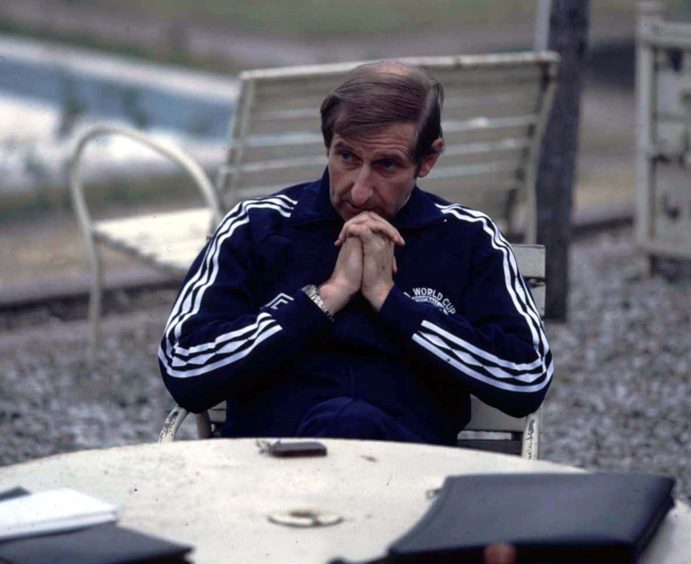
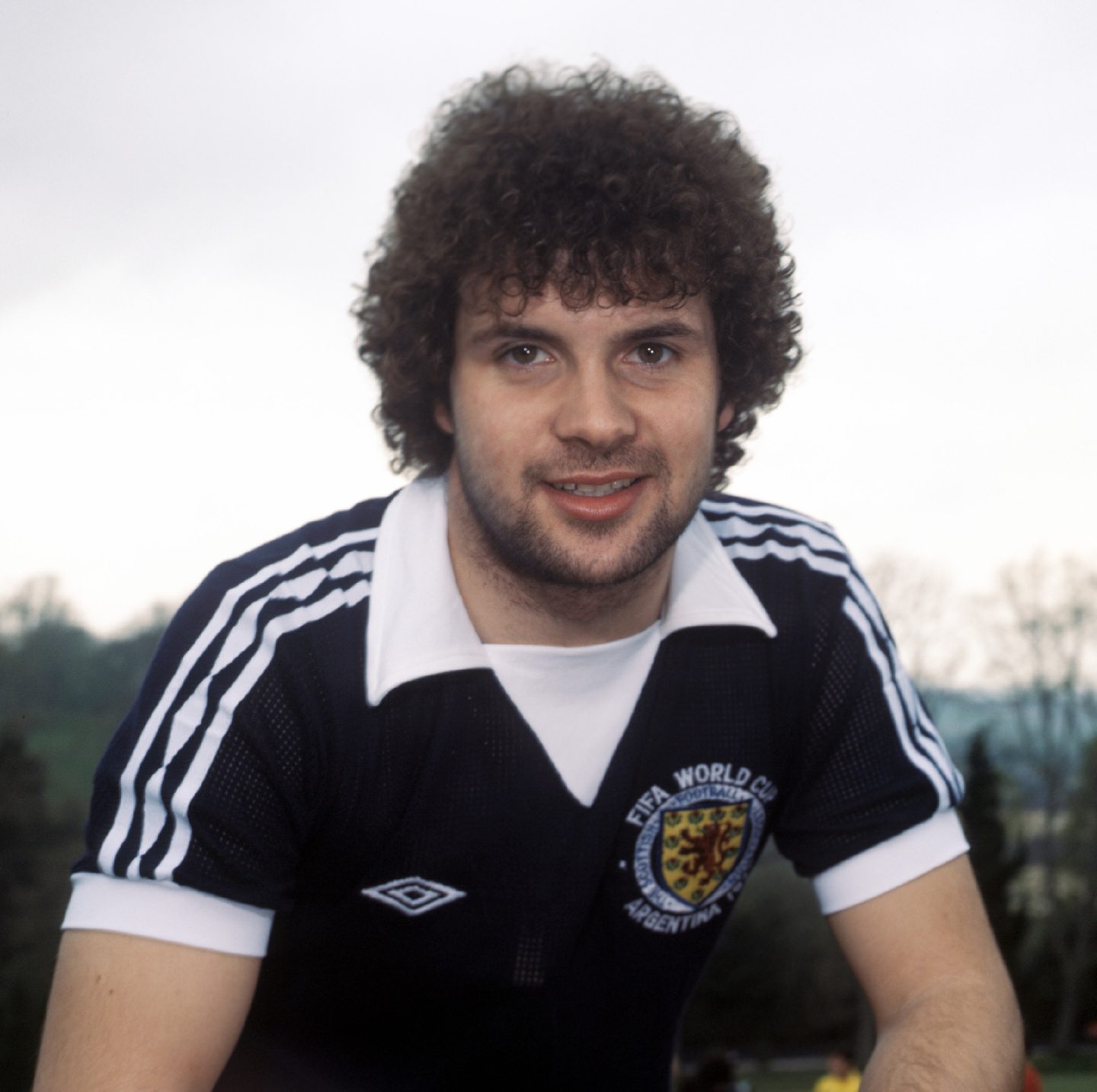
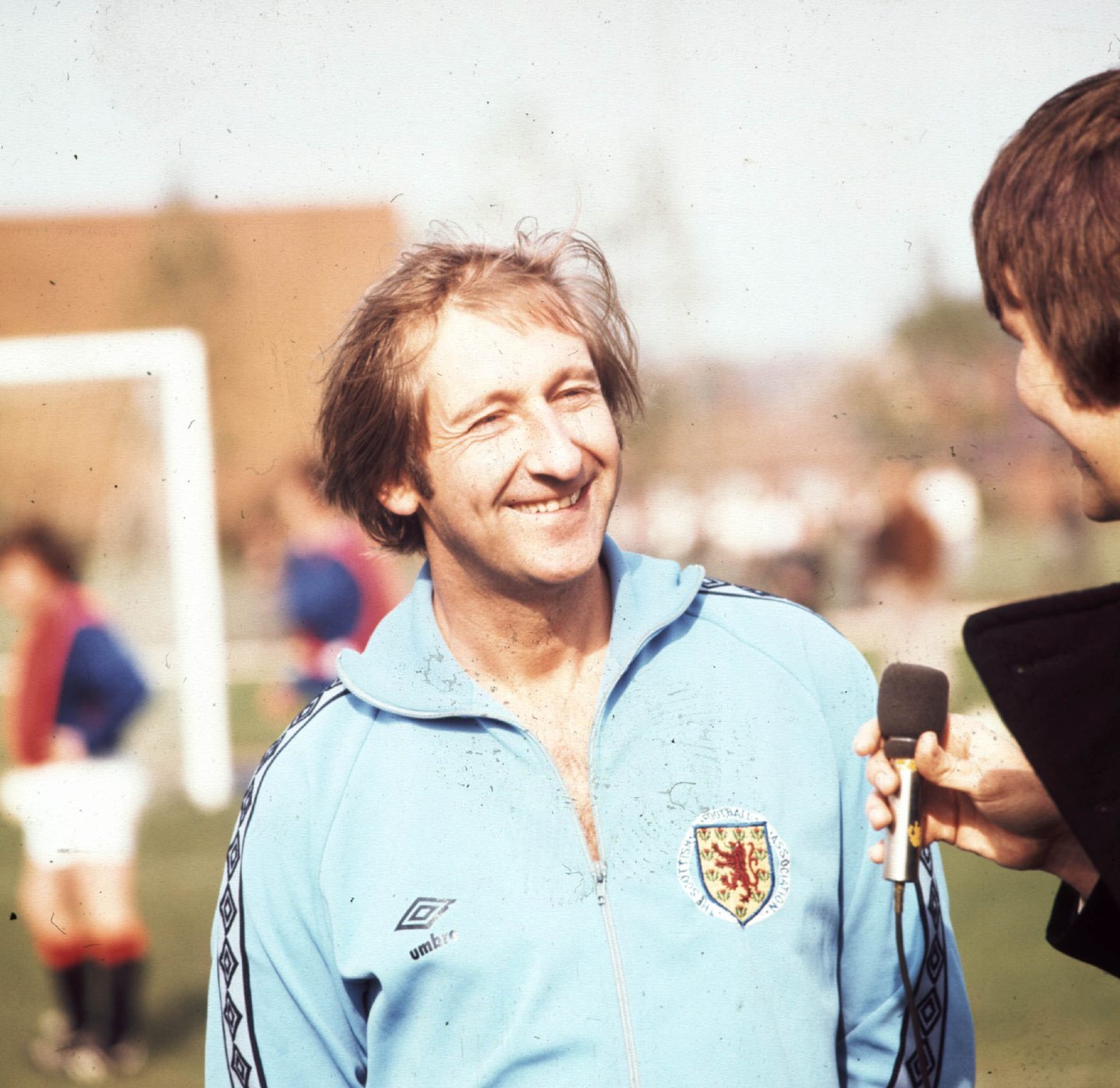
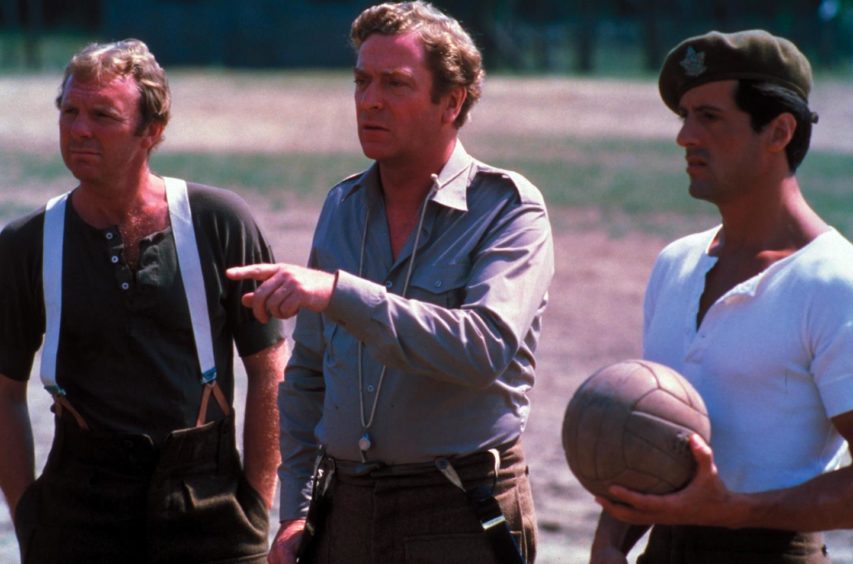
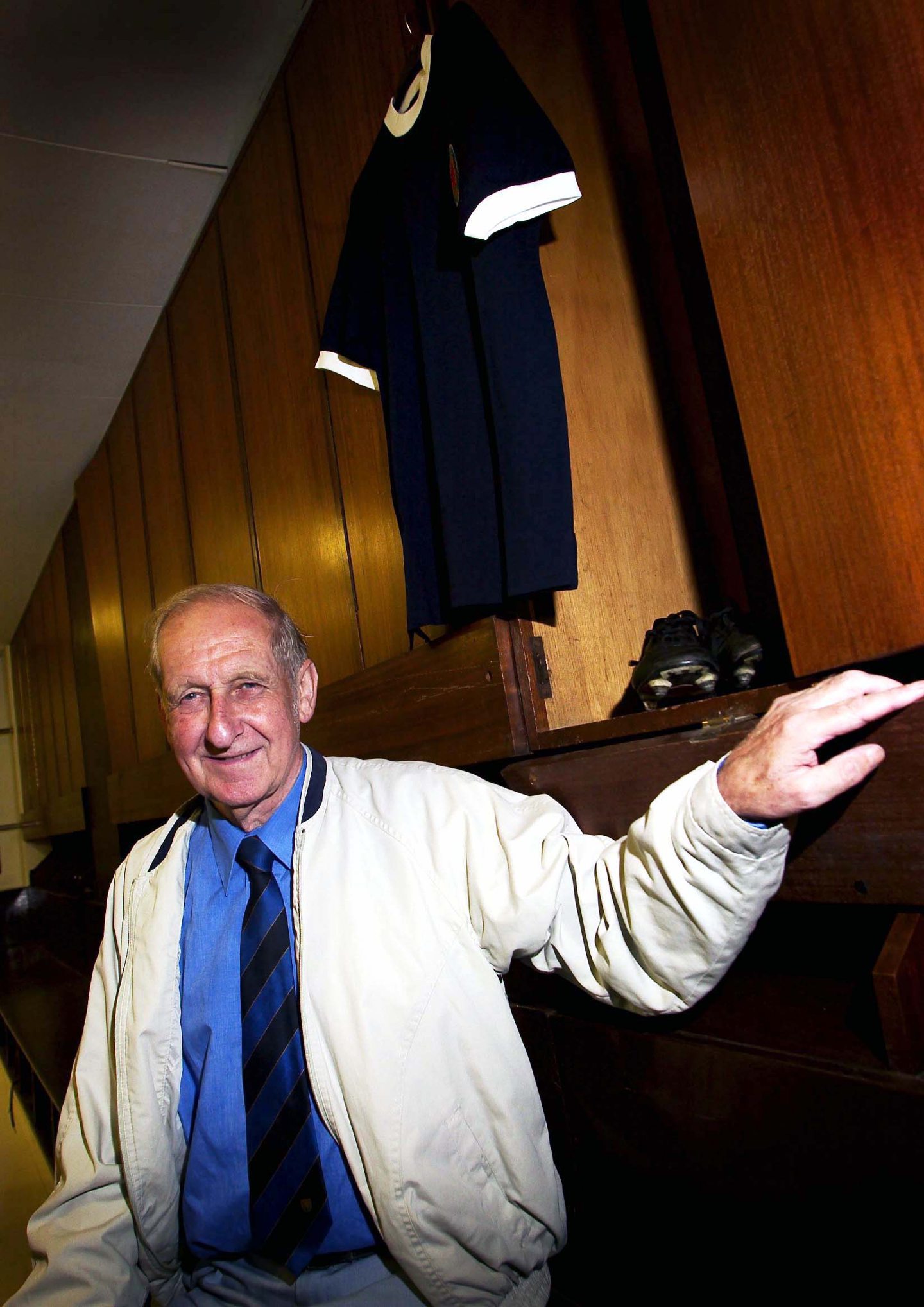
Conversation